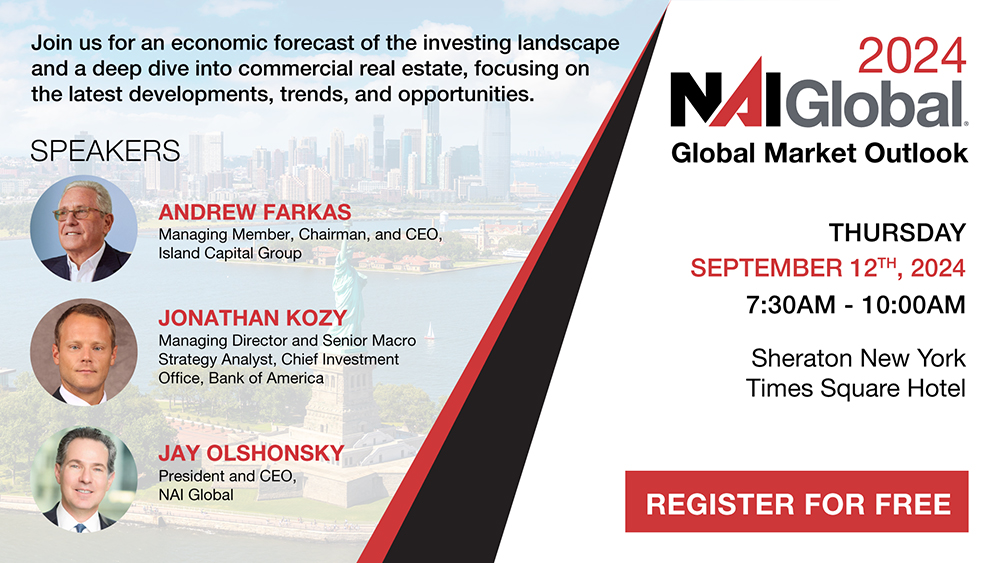Professor Florida is Optimistic About American Cities
Amid the doom-and-gloom for American cities and Central Business Districts negatively impacted by under-utilized office space, Richard Florida is nearly giddy with optimism. In a recent live Zoom meeting produced by American Cities Business Journals and moderated by Crystal Edmondson, a Senior Editor with the Atlanta Business Chronicle, the American-born professor at the Rotman School of Management at the University of Toronto launched into his talk with a discussion on employment and attracting talent, then referenced reshoring and nearshoring, saying: “These are the most exciting new developments in America in decades and one of the best things I’ve seen happen in my life.” Mr. Florida is 66. He is also a Distinguished Fellow at NYU’s Schack School of Real Estate and best-selling author with his book, The Rise of the Creative Class and more recently, The New Urban Crisis.
Despite the title of his latest work, which is a clarion call to reverse some of the downsides that happens in mature cities – namely, gentrification, unaffordability, segregation and inequality, Florida sees a changing landscape in which new and thriving cities embrace change and convert downtowns into entertainment centers.
He cited some work done by the Center City District in Philadelphia that used Placer.ai data to show that 25% of downtown activity comes from workers, while 10% to 15% are from people that live there, and the rest, or about 60%, is from visitors.
“In almost every American city that ranks highest for activity and visitation, (and he cited a Gensler survey when talking about this), even remote workers like to come downtown – to meet with work colleagues from work, to engage in social activities with people they know. They go to restaurants and bars. Cities are adding fitness centers to their downtowns. In other words, they are building their own community and culture,” he said.
Florida referenced Detroit’s success in putting a casino in its downtown area – something that he admitted he was dubious about 20 years ago when it was first planned, yet has become Detroit’s focal point and bold foray into gaming, drawing thousands of visitors weekly to the downtown. The MGM Grand Detroit is located off the John C. Lodge freeway (M-10) on the westside of the downtown area.
“Detroit has made its downtown FUN!” Exclaimed Florida, adding that work environments are no longer enough for cities to thrive.
“There is also a new kind of city that is emerging that is based on events, conferences and related activity, like Las Vegas and Miami,” said Florida.
Twenty years ago, real estate marketing people came up with a new saying to describe innovative and appealing real estate projects with the phrase “Live. Work. Play.” Now it’s live, work, play, entertain and connect, he said.
Florida didn’t mention it, but San Francisco is working on a plan to bring a downtown sports arena to the City by the Bay, and install a Major League Soccer club there.
Florida also called for more downtown housing, with a mix of affordability.
“Paris gets this right. They have affordable housing in the inner city,” he said.
America needs to work on and improve its educational school systems in inner cities, according to Florida. In Toronto, where he lives, he said the city’s submarkets are fantastic places to raise families and that the schools are good throughout the city, because they are Provincially funded, not locally funded.
“We need to make cities more family friendly,” he said, and referenced the old adage about suburbia and its historical development: “In America, we drive until we qualify,” meaning, we move outward and away from our cities until housing becomes affordable and families then qualify for home mortgages.
The Professor clearly emerged in Florida’s talk after he had cited multiple studies to make or reinforce his point, when he declared on camera: “I hate to wonk out on you,” yet it was charming, and besides, he can’t help but to wonk out, and audiences love it.
“There is a reckoning coming to downtowns. Reuse is about a different kind of work. And like it or not, remote work is here to stay. But the work-life equation is changing. We’ve had a century-old split between work and life. For downtowns, we need to use classic anchor institutions to draw people, like medical facilities and universities. It’s about building the whole package. A neighborhood. A community. A place to bring the kids. The dog. This is not rocket science. We’ve made and remade our cities over and over again. We invented the Central Business District. What’s next is a new version of opportunity zones that feeds into our innovation economy,” Florida said.
He wasn’t 100% positive on the future of cities, and addressed the over-supply of office buildings, saying: “As lease terms expire and tenants don’t renew, or renew as much space, (valuations) pricing is going to come down to where many office buildings will be converted, reused or just torn down.”
In conclusion, Richard Florida said: “I am very optimistic that we’ll get past the current environment. There are always bumps in the road, but over time, we have so much innovation and more coming down the pike.”
